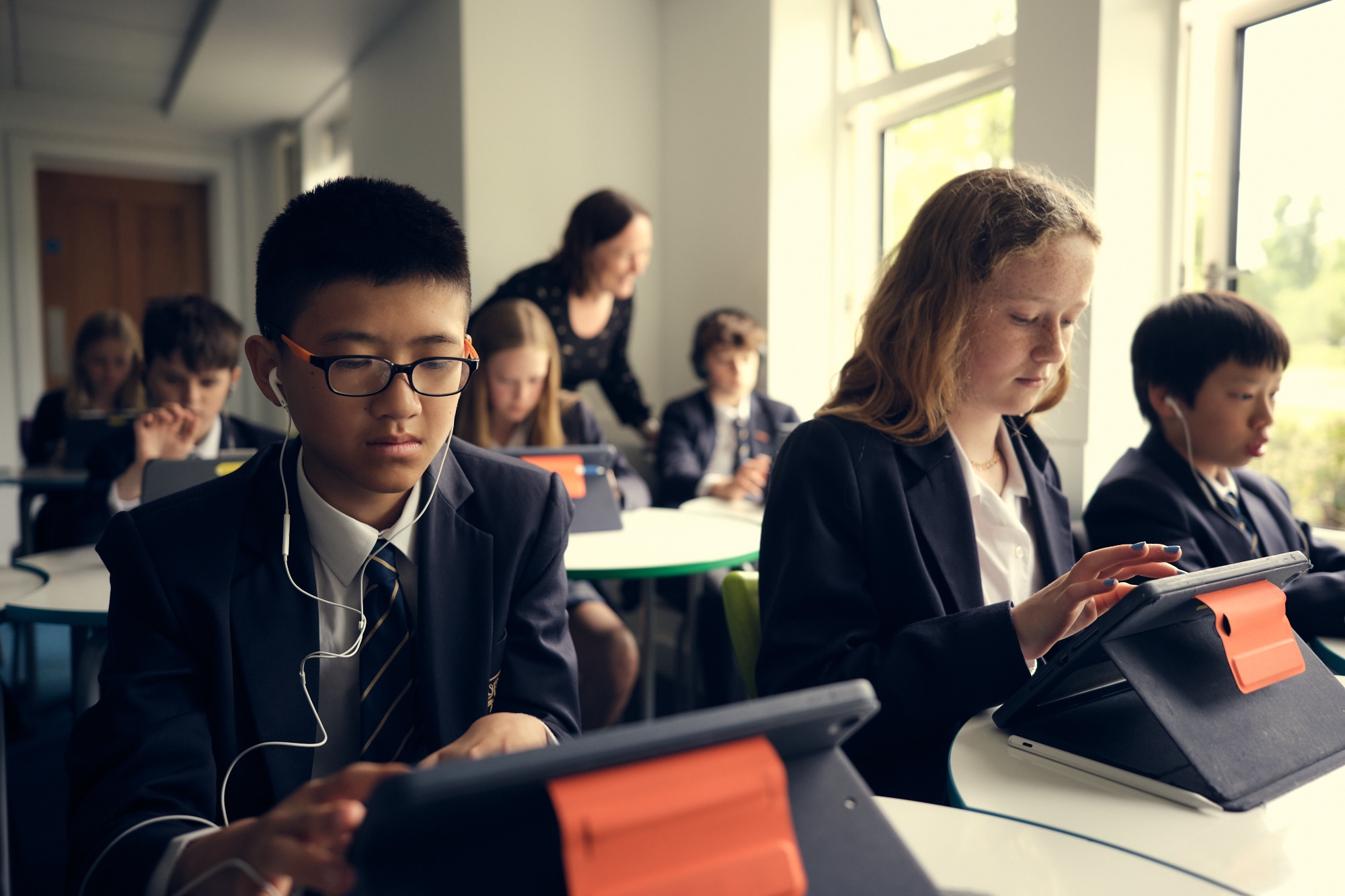At Epsom, as part of our focus on Positive Wellbeing, we equip pupils with the tools they need to navigate both the digital and physical worlds with confidence. One key initiative is the Digital Passport, a programme developed to teach pupils essential knowledge on how to avoid the common pitfalls that come with life in a digital age.
As portable technology becomes more intertwined with daily life, understanding how to manage a digital identity is crucial. Our pupils receive their Digital Passport in Year 9, through our Personal and Social Development (PSD) course. These sessions provide practical advice and cover the following important topics, designed to help pupils manage themselves online.
Navigating Online Images: Self-Image in the Digital World
Many teens invest a significant amount of time curating their online presence – whether it’s editing photos or maintaining friendships via social media. In our lessons, we explore the differences between online and real-life interactions, emphasising how unhealthy comparisons and the pressure to live up to unrealistic body images can affect wellbeing. By learning how to separate online appearance from reality, our pupils are better equipped to manage their digital personas responsibly.
Understanding Rights: A Guide to Online Behaviour
Pupils are also educated about their rights and responsibilities online. They learn that the same behavioural expectations they face in the classroom or at home also apply to their digital lives. By fostering a sense of accountability, we help them understand how to act ethically in all spaces, whether face-to-face or online.
Consent in a Digital Age: Learning to Communicate and Respect Boundaries
One of the most important lessons in our Digital Passport sessions is the concept of consent – both in real life and online. Pupils learn how to recognise and give consent, and how it can be withdrawn at any time, in any context. Our teaching empowers them to set boundaries and understand the significance of mutual respect in every type of interaction, from social media to personal relationships.
The Digital Footprint: Understanding Online Permanence and Risk
The internet never forgets. We emphasise to our pupils that every post, message, or image shared online leaves a digital footprint that could remain forever. By showing them how to manage their digital presence carefully, and advising against sharing personal material, we instil a sense of responsibility to think before they click. This knowledge is crucial in a world where privacy can easily be compromised.
Addressing Cyberbullying: Taking Action and Finding Support
Cyberbullying is an ever-growing concern, and many parents worry that their child could fall victim to it without them even knowing. We guide pupils through recognising and reporting online bullying and the role bystanders play in curbing it. They learn where to seek help, empowering them to take action if they or their peers encounter harmful behaviour online.
Epsom’s Pastoral Support: Always There When Needed
At Epsom, we pride ourselves on our comprehensive pastoral support system. Pupils are never alone – whether it’s through their housemasters, housemistresses, tutors, or matrons; they know they have someone to turn to. We encourage open discussions about harmful online behaviours such as bullying or harassment and provide resources to report or seek help.
The Digital Passport is just one part of our larger Personal and Social Development (PSD) curriculum. Throughout the year, pupils also cover essential topics such as
- mind education
- character development
- career planning
- climate change
- financial literacy
- relationships
- personal strengths
- sleep health
- drug awareness
- menstruation
At Epsom, we’re not just preparing our pupils for their exams – we’re preparing them for life in an increasingly digital and interconnected world.





